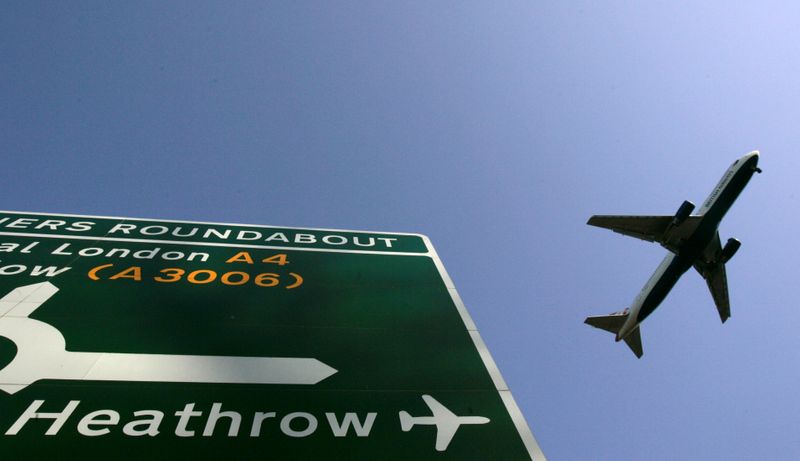By Susanna Twidale
LONDON (Reuters) - Britain's aviation industry has set out plans to reach a target of net-zero carbon emissions by 2050, even with the building of a third runway at Heathrow airport which is expected to drive up flight numbers.
The plans were published on Tuesday by the Sustainable Aviation coalition of companies in the British sector, including engine-maker Rolls Royce (LON:RR), airline easyJet (LON:EZJ), BP's aviation fuel arm AirBP and planemaker Airbus.
Meeting the emissions target is likely to require several major changes in the industry, such as more efficient aircraft and a significant increase in the use of sustainable aviation biofuels, which are currently not widespread.
It may appear a tough goal, given air passenger numbers are expected to grow 70% by 2050, pushing up the number of flights. But the industry, which accounts for around 7% of Britain's emissions, says it will also offset its own emissions by funding reductions elsewhere.
Carbon offset projects can include planting trees or helping to fund renewable power projects such as wind or solar in developing countries.
The coalition said the emissions target could be met despite the expected business growth, adding: "This includes the opening of a third runway at Heathrow by around 2030."
However critics say offsetting emissions reduces incentives for the drastic emissions cuts needed to slow global warming and does not always bring the intended benefits; for instance, new trees may not grow as quickly as promised.
The Heathrow expansions plans, which include building the first full-length new runway in the London area for 70 years, are also opposed by climate protesters and some local residents.
British Prime Minister Boris Johnson has opposed Heathrow’s expansion in the past, but lawmakers approved the plans in 2018.
The aviation sector's plans are in line with Britain's target to reach net-zero greenhouse gas emissions by 2050. It was the first G7 country to set such a goal, which will require wholesale changes in the way people travel, eat and consume electricity.
Graphic: Britain's aviation net zero road-map, https://fingfx.thomsonreuters.com/gfx/ce/7/8392/8373/Pasted%20Image.jpg
CARBON PRICING
EasyJet last year became the world's first major airline to operate with net-zero carbon across its flight network by using carbon offsets.
The coalition plan also expects carbon pricing - where CO2 producers pay the government for each tonne they emit - to play a role, as the cost is likely to be passed on to consumers and thus somewhat curb burgeoning passenger numbers.
"A carbon price which rises to 221 pounds a tonne by 2050 will reduce demand by around 30 million passengers per year and reduce carbon emissions from UK aviation by around 4 million tonnes of CO2 per year," the report said.
The aviation sector is currently included in Europe's Emissions Trading System, with the benchmark carbon contract trading around 23 euros (19 pounds) a tonne.
Despite Britain's departure from the European Union, the country remains a member of Europe's Emissions Trading System during the transition period until the end of the year.

Andy Jefferson, Programme Director at Sustainable Aviation said the 2050 target for the sector was in line with recommendations made by the U.N. Intergovernmental Panel on Climate Change.